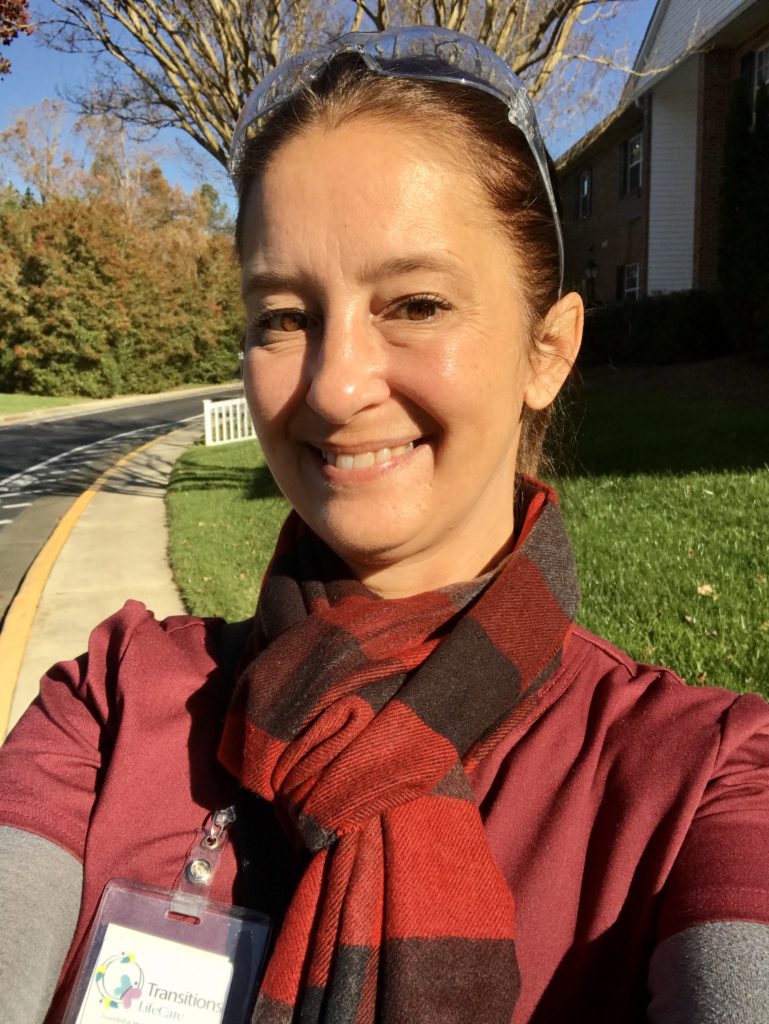Hospice: Sprint Versus Marathon
 As I approach my one-year anniversary of the greatest job I have ever had, I’ve found myself thinking more about hospice and what we do, as well as what people think when they hear the word “hospice.” I believe my role as hospice nurse aide is one of the closest, most intimate and personal of any of the roles that comprise a patient’s hospice team. I see patients more than anyone on the care team, and the care nurse aides provide are the most personal and private for each patient. We help with “activities of daily living,” which means we are with patients two to three times a week bathing, showering, performing hygiene and other daily tasks such as changing bed linens or feeding. During those visits we develop what I like to call “heart connections.” We become close with our patients and often they tell us things they don’t tell others, such as fears, thoughts, family gossip, or updates about their children or grandchildren. It is truly a wonderful role to be in.
As I approach my one-year anniversary of the greatest job I have ever had, I’ve found myself thinking more about hospice and what we do, as well as what people think when they hear the word “hospice.” I believe my role as hospice nurse aide is one of the closest, most intimate and personal of any of the roles that comprise a patient’s hospice team. I see patients more than anyone on the care team, and the care nurse aides provide are the most personal and private for each patient. We help with “activities of daily living,” which means we are with patients two to three times a week bathing, showering, performing hygiene and other daily tasks such as changing bed linens or feeding. During those visits we develop what I like to call “heart connections.” We become close with our patients and often they tell us things they don’t tell others, such as fears, thoughts, family gossip, or updates about their children or grandchildren. It is truly a wonderful role to be in.
Journey as a sprint
Of course, patients come in at different parts of their journey. There are times they come in so close to the end of their lives that I may only see them once, if at all. These “crisis” situations are hard because the family is scrambling to get their loved one comfortable, everyone is stressed, and you don’t really get a chance to truly bond with that patient or their family. We also have patients who are with us a few weeks. It feels as though we are just getting to know them and their family and then they pass on. This journey is more of a sprint.
Journey as a marathon
The patients I really want to tell you about are the ones who come in early in their journey. They possibly come to us as palliative care patients where they’re still pursuing some form of treatment for their terminal illness before transitioning to hospice care. I believe these patients get the most benefit from our care. We get in there early enough that we truly form a solid relationship not only with the patient, but also with their families. The journey then becomes a marathon instead of a sprint.
If you think of it like this, you can set a pace as you work your way through the journey. Their care is brought to them without the hassles of endless doctors’ appointments. Supplies, including medications, are sent directly to the home. Caregivers can gain knowledge for the road ahead of them. They also get time and use of respite care so they can take care of themselves as well as their loved one. As the patient moves forward in their journey and they move from palliative to hospice care, it is often a much easier transition.
I recently lost a patient I’d had from the beginning of my time with Transitions LifeCare. We had 10 beautiful months together. She was 91 years old. I got to know her very well and she went from being so modest and embarrassed for someone having to help her bathe, to looking forward to my visit three times a week. She told me all about her incredible life. She was an amazing woman, a single mom who became a nurse and then at age 50, decided to put herself through law school! She passed the bar exam and practiced civil law. I also got to know her son and daughter-in-law who had moved in to help care for her. Along the way while I was with them, I was able to help teach them and help navigate their caregiving skills as needs arose. They were able to send her to “the spa” as she called it, for respite time so they could get away. Because we were there early, the journey was smooth. They didn’t get caregiver burnout, and that sweet woman was well taken care of by a team of hospice workers she got to know for 10 months. The patient and family built trust and a sense of comfort that way.
If I can impart anything to anyone faced with a terminal illness, it would be to explore your options with hospice. Hospice care provides so many different benefits and approaches. This is one of my favorite quotes:
Hospice is not the fast track to the end of the race…. it’s simply choosing a smoother ride for the journey. (author unknown)
–by Christa Hicks
Christa Hicks is a certified nursing assistant with Transitions LifeCare. She loves to share her passion for patients and her profession through writing.